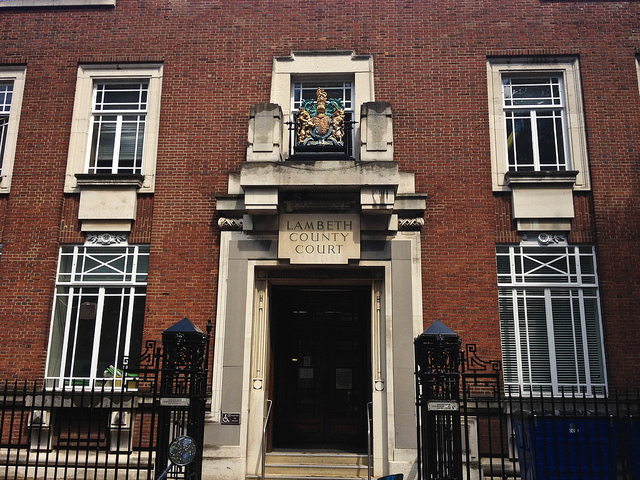
Mark Bagshaw, a Camberwell-based solicitor with Amphlett Lissimore, considers the cost to individuals and society of cuts to our justice system
Since 2010, the government has closed around 300 courts in England and Wales, and has plans over the coming years to close another 77.
The most recent closure to affect local residents has been that of Camberwell Green Magistrates Court which closed for good on 31 January this year.
This was, for many years, one of the busiest courts in London. Now both defendants and witnesses from Brixton will somehow have to travel to East Croydon to appear in court.  Camberwell police station, which was often used by ward officers and for child protection interviews, has been sold. South Norwood police station has been sold and turned into an academy school. East Dulwich police station is also now an academy. Lambeth’s Gipsy Hill police station closed to the public several years ago. Streatham police station is closed. Kennington police station is closed.
Camberwell police station, which was often used by ward officers and for child protection interviews, has been sold. South Norwood police station has been sold and turned into an academy school. East Dulwich police station is also now an academy. Lambeth’s Gipsy Hill police station closed to the public several years ago. Streatham police station is closed. Kennington police station is closed.
The general population of the UK has increased since 2010, yet the number of police officers has dropped by almost 21,000. At the same time, despite the prison population remaining static, the number of prison officers has decreased by around 7,000, which means fewer resources for the “reform” element of imprisonment.
So how does a government keep the confidence in the rule of law among the population at large?
One hackneyed old tactic is to repeat how much money is being spent and what the plans for spending are, and to talk about transformation and a digital programme. It does not matter what the figure is, because it will always sound large and impressive, even though it is, in many respects actually meaningless.
Another is to announce increases in prison sentences. This usually hits the spot as the media are constantly encouraging us to be outraged at low sentences, even though we already have the longest sentences in Europe.
A British Crime Survey found that 87% of respondents thought that the courts were being too lenient. It then gave concrete examples of cases to respondents of the survey. More than half of the respondents – 64% – would have given sentences lower than were actually given by the court; 13% were more or less the same as the court; only 18% would have given a higher sentence.
The other tactic is to invent yet another criminal offence.
One of the brand new procedures, introduced on 20 January 2020, is the Stalking Protection Order. This is actually, in theory, a civil order, but is obtained by police at a magistrates court.
To obtain an interim order against someone whom the police think may be stalking someone, but don’t feel able to charge with an actual criminal offence, the standard of proof is low, the evidence can be hearsay, and breaching the interim order could result in imprisonment of up to five years. The order can require someone to surrender details of their social media accounts, sign on at a police station, attend a mental health assessment, register any changes of address within three days, or do or not do a whole heap of other things.
The accused will be able to be represented by a legal aid lawyer, as long as they don’t earn more than about £12,500 per annum. Otherwise they are likely to face complex legal procedures unrepresented at court.
It will be interesting to see how the police deal with these new powers – the balance shifts between the state and the individual.





